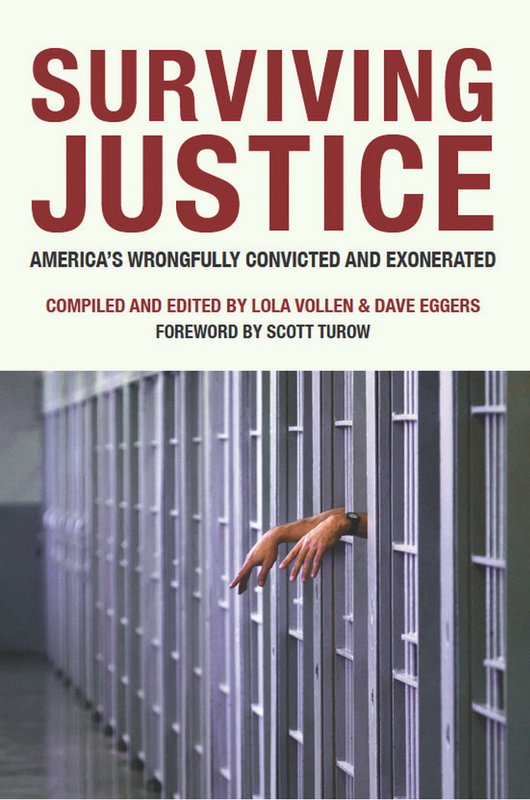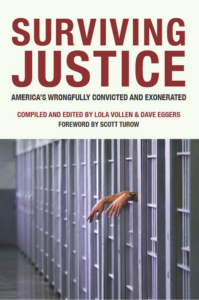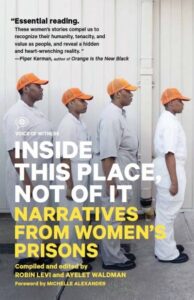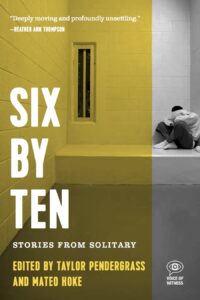The Voice of Witness book series amplifies the stories of people directly impacted by—and fighting against—injustice. We use an oral history methodology that combines ethics-driven practices, journalistic integrity, and an engaging, literary approach.
The books explore issues of inequity and human rights through the lens of personal narrative. Each project aims to disrupt harmful narratives by supporting historically marginalized or silenced communities to tell their own stories in their own words.
Book clubs are useful tools for engaging and interacting with these oral histories and the issues they highlight. Find our handout with guidance on planning and facilitating one here.
Use the questions below to start a book club for Surviving Justice: America’s Wrongfully Convicted and Exonerated.

Discussion Questions:
- Christopher says that in prison, “you learn not to trust people.” How does trust factor into his story, and why might he develop a distrust of people as a result of his experience? How does an individual’s identity shape their trust in the government and their peers?
- Juan says that when men on death row are executed, “they’re not the same people that committed the crime.” According to the Department of Justice, the average death row inmate spends 15 years between sentencing and execution. Does this amount of time contribute to spiritual growth? If so, how? Do you think that people on death row have the capacity to change?
- Gary says that the jury “couldn’t even consider that the police could be lying.” How do you think people’s perception of an individual or group’s trustworthiness influences jury verdicts? What are factors that determine trustworthiness?
- In regards to having an all-white jury, James says, “People believe that when you sit at the defense table, you’re guilty.” How do prejudices influence the criminal justice system and what issues does this influence present? How do you think juries should be composed in order to maximize fairness and limit the potential for personal bias?
- Calvin describes ex-cons being stigmatized as “animalistic” and “contaminated” by their time in prison. Why do you think Calvin chose those words? Do you think there is truth to these assumptions? Explain your answer.
- Beverly compares Agent Riley’s threats and scare tactics to “holding a gun” to her head. How can psychological trauma manifest in a physical manner?
- Beverly says that the prosecution called her “bonkers,” and part of their argument hinged upon the idea that women cannot be independent. How do comments like this impact women in securing fair and unbiased treatment in our criminal justice system? How do comments like this relate to global and societal issues around gender roles?
- Michael says that he was the “perfect candidate” to be arrested because he had no criminal record, allowing prosecutors the opportunity to “mess it up.” How does Michael’s story highlight a distrust between police and young Black men, and how does this play out at a broader societal level?
- David says that the parolees stopped giving released inmates $200, and instead only provide $50 for a bus ticket. How might this shift contribute to rising recidivism rates? Does the state have a responsibility to help prisoners reintegrate into society? Why or why not?
- Peter says that even though his kids were raised free, “they’re still in prison in their heart.” How does imprisonment influence families and communities in addition to the individuals convicted?



